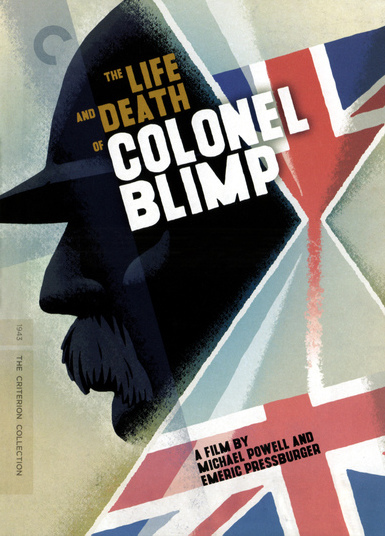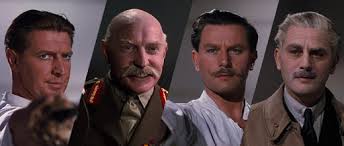
The internet has brought us “anything and everything all of the time” yet some of history’s greatest movies are absent from any streaming platform. “The Life and Death of Colonel Blimp” is rare in all ways. Its expansive, civilized- humorous and blustery at points, pensive and sad in others, but always dignified. Compared to even the best movies of today “Colonel Blimp” is deep in tone and subject- the pieces that make it up are not all aimed at one thing. It is a movie as excellent as it is historical (it was one of the first films shot entirely in Technicolor) and you can only find it in its physical form at a video store.
In following Clive Candy’s life, from soldier to general, we watch him fight and win wars, fall in love and suffer loss. “The Life and Death of Colonel Blimp” celebrates- and grieves- for a more honorable time. Perhaps it is even more grand today for this reason. At base, Colonel Blimp is beautifully filmed and well crafted. The story moves at an interesting clip, scenes are radiant, its parts acted well. The pieces are well executed but in truth, nothing out of the ordinary or particularly noteworthy. What makes “Colonel Blimp” worth watching is its humane storytelling. Colonel Blimp is told in a holistic way: dedicated to preserving the dignity of a fictional character by showing us the funny and sad parts of his life. His victories and regrets have their own tones, the movie evolves with each epoch of his life, settling into a suitable bleakness and drab palette for his later days. The film is then brought back to life when the camera focuses on the young soldier from the introduction of the film: a promising upstart set to usurp the aged general and force him to hand down his power and leadership to a younger, more desperate, generation. The soldier’s youth and playfulness resuscitate the film in all ways. All in all its told like a comedy, but it isn’t purely a comedy, though it is also alien to the relatively newer “dramedy” genre.
What struck me and most critics when they first watch “The Life and Death of Colonel Blimp” is its transition from introductory scene to the heart of a character’s life story. What makes this scene profound is its supreme confidence in this decision. Modern narratives are far less sophisticated: whenever the narrative is out of order, a conceit for time travel must be explained or pointed out, to the point of inventing time machines or convoluted fake science and hand waving. Like a novel, “Colonel Blimp” takes its viewers through time because thats the way the story is told- theres no explanation, there is no need. In the film’s intro the Colonel himself doesn’t tell the viewer or stand ins for the viewer that he is about to tell us a story about his life, no, it is implied with his threat, amidst a fury of left and right hooks, laid upon a surprised and hot headed young soldier: “you laugh at my big belly but you don’t how I got it! You laugh at my mustache but you don’t know why I grew it! How do you know what kind of soldier I was when I was as young as you are!? 40 years ago!” From there, the camera pans across the pool to its other end, the fighters disappear off camera and soon enough, a figure swims in and a hero emerges- a 40 years young, Colonel Candy.

Most central to the film is the friendship that emerges between Colonel Candy and a German soldier. What bonds these men is a duel, (by the end of the film, a completely outdated, if not ridiculous concept) which leaves General Candy with victory and a scar. Fate conspires to bring these men together again, a friendship blossoms at a hospital between the two and a nurse. Another duel awaits, this time Candy loses, and the love of his life marries his close friend. Being the blustery and honorable type that he his, he is happy for them, but the loss tinges his life after in a darker shadow. Later in the film, the friends a brought together once again, no longer as enemy combatants, but as old friends banding together against the evils of an emerging empire and the weight of time and decay.
Interesting and unique to this movie is that its filmed like a comedy of errors. Its nostalgic lens is glorious and golden, and even still, it manages to pull off feelings of sadness and inspire thought. There is too much to write about with this film, I have only described the most general, broad strokes that make it special. The big dramatic moments, the acting, the monologues, the way the characters age, the story parallels. There is a lot to discover and what the viewer is left with is both life affirming and tender, the sense of a life lived.
If that doesn’t sell you on it- take it from who sold me on the thing, Martin Scorsese